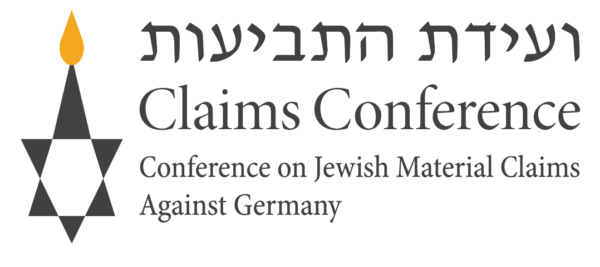Claims Conference Negotiates Pensions for Additional 16,000 Survivors; German Government Criteria Changes Largely Affect Child Survivors
Claims Conference in the Media | Press Inquiries | Publications | Videos | Updates
This post is for historical informational purposes only. Please do not refer to this post for information pertaining to current Claims Conference programs. Visit What We Do for current program guidelines and information. Thank you.
December 5, 2011
Certain Holocaust survivors who have been denied German compensation pensions will now be eligible to receive them as a result of Claims Conference negotiations with the German government.
Prior to the negotiations, certain survivors were only eligible for pensions from the Claims Conference Article 2 Fund and the Central and Eastern European Fund (CEEF) if they had been in a ghetto, in hiding, or living under false identity for at least 18 months during the Nazi era. This minimum time period of persecution was part of the eligibility criteria established by the German government, and which the Claims Conference for years has been working to change.
As of January 1, 2012, the minimum time period for having lived under any of these conditions will be reduced to 12 months.
The Article 2 Fund makes monthly payments of €300 and the CEEF makes monthly payments of €260 to certain Holocaust survivors who meet all eligibility criteria, which encompass factors other than persecution history:
Please see:
Article 2 Fund Eligibility Criteria and CEEF Eligibility Criteria
Further, as of January 1, 2012, those survivors age 75 and over who were in a ghetto for less than 12 months but a minimum of three months will be entitled to a special monthly pension of €240 if they live in the West or €200 if they live in the countries of the former Soviet bloc, if they meet the other eligibility criteria of the programs.This liberalization will drastically change the compensation programs, especially for those who endured the Budapest Ghetto.
Historical photos of the Budapest Ghetto can be viewed at www.claimscon.org/budapestghetto.
These liberalizations will largely affect child survivors, whose special plight has been a primary focus of recent discussions between the Claims Conference and the German Ministry of Finance. The above liberalizations, especially for victims who survived in hiding, will have a substantial impact on heretofore uncompensated child survivors. The Claims Conference and the German government have agreed to establish a working group to review the special plight of child survivors, defined as those born in 1928 or later.
Together, the Article 2 Fund and CEEF have paid pensions to more than 109,000 Holocaust survivors since 1995. Both programs were created as a result of intensive Claims Conference negotiations with the German government.
The Claims Conference meets regularly with German government officials to negotiate changes to these and other programs so that additional Holocaust victims may receive compensation payments. Negotiations focus on expanding the criteria for compensation programs, so that the experiences of more Holocaust victims are recognized, and on increasing payment amounts.
The Claims Conference will continue to press other issues of concern in future negotiations with the German government.
The information here does not constitute a full and comprehensive description of the criteria of the Article 2 Fund or CEEF or of any amendments to this program. Eligibility criteria for Article 2 and CEEF payments are determined by the German government.
December 5, 2011

